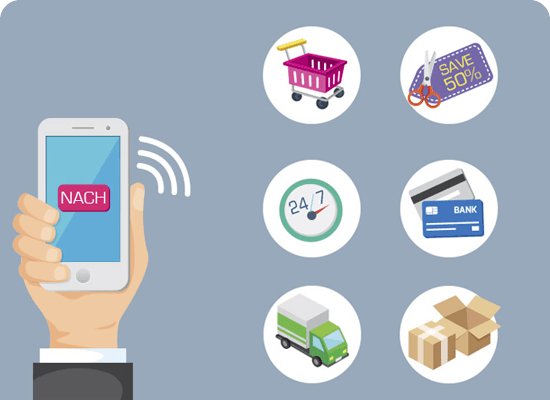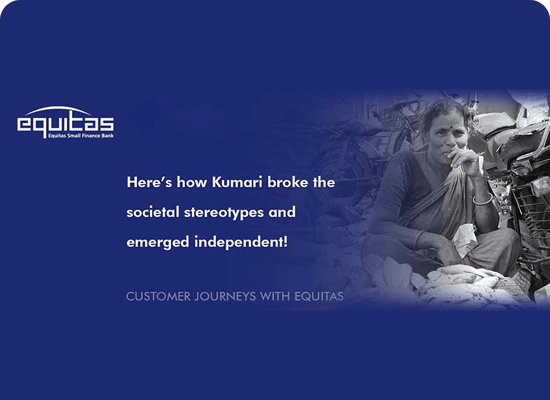
NACH: Streamlining Electronic Payments
Simplifying high-volume transactions for Businesses and Individuals
NACH FAQs
Everything about NACH, right here!
NACH was introduced by NPCI to make repetitive payments faster by debiting directly from customers’ accounts, thereby minimising paper transactions and increasing customer satisfaction.
Unlike the ECS system, which is a decentralised process, NACH is the centralised process and can be managed from a single location.
NACH enables presentations and payment settlements to be completed on the same day and this includes the processing of returns.
NACH Debit is an electronic payment service used by a user Institution for repeatedly collecting funds from large numbers of individuals by debiting their bank accounts by raising a single request to its bank. Mutual Fund (SIP), Insurance Premium, Loan Instalments, credit card payments, payments of donations and other bill payments can done through this payment method.
Mandate is collected from the customers by the utility companies, banks/ financial institutions receiving periodic /repetitive payments towards electricity bills, telephone /mobile bills/ loan instalments/insurance premium/ Mutual Fund (SIP), etc. to directly debit their bank accounts. The mandate contains the details such as name of the customer, Utility code of the corporate/user company, account number, name of the bank/branch, IFSC/MICR code, period of transactions, type of transactions (monthly/qrtrly/yrly etc.).
The user company provides the mandates where in all the required details are filled with the customer signature (as per bank account maintained with the destination bank) to the Sponsor Bank.
After due validation of the data, the Sponsor bank will process the same and arrive at the NPCI. NPCI then shares the mandates with the respective destination banks (banks where the customer accounts are maintained)
Destination bank then verifies the mandate details against their CBS system and responds to the NPCI within the stipulated time.
On receiving the response from the sponsor bank, NPCI shares the same response to the destination bank along with a unique number for each of the mandate which is called, Unique reference mandate number (UMRN).
If the response received from the sponsor bank is positive, destination bank will process the transaction provided by the user company.
NACH Credit is an electronic payment service used by an institution for affording credits to a large number of beneficiaries in their bank accounts for the payment of dividend, interest, salary, pension etc. by raising a single debit to the bank account of the user institution.
i. Mandates are not required.
ii. After getting Utility Code from NPCI, Corporate may submit NACH Transaction file to the Branch for further processing on the specified format of NPCI.
One Time Mandate is a one-time registration process. It is just an authorization to the bankers to debit the account with a fixed amount or up to a certain limit as per the frequency given by the customer in mandate form.
The mandate has to be in the size of a standard cheque i.e. 8” x 3 2/3”. It is mandatory to restrict the mandate to the size mentioned above.
UMRN - UMRN is a Unique Mandate Reference number allocated to each new mandate created in NACH Debit. It is auto generated by the NACH system during mandate creation. UMRN is mandatory for every transaction.
Under NACH, there is no limit on the value for individual transaction.
No. All you need to do is to give a NACH mandate to your service provider for debiting your account.
If customer’s service provider informs the customer about the bills due dates and payments through SMS, he/she will receive SMS alerts.
If customer is an Equitas Bank customer registered for Mobile Banking with Equitas Bank, then customer will get SMS alert for every debit /credit transaction hitting your account
Customer can view your account through your Account statement as well.
Yes. You can modify the details registered for NACH by filling the Mandate form and choosing the 'Modify' option . You can also cancel your NACH registration by filling in the Mandate form and ticking the `Cancel` option.
Blogs




